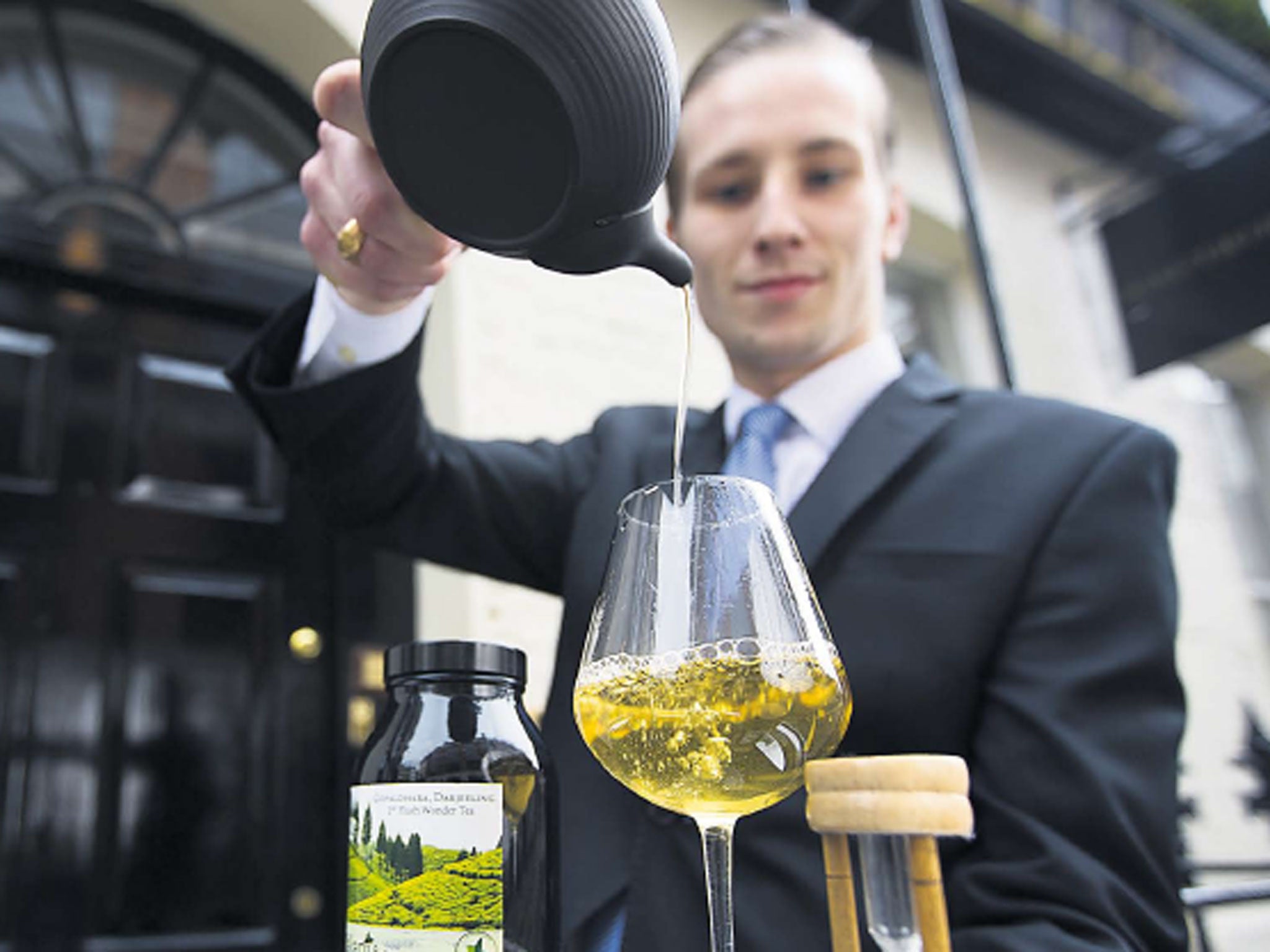Diners shun wine for a nice cuppa
Speciality teas are becoming the drink of choice in top-notch restaurants

Lunchtime, suppertime: any time is teatime at a growing number of top restaurants as chefs encourage diners to swap that glass of something for a nice cuppa. Restaurateurs are hailing tea as the new wine, claiming Britain's national drink is better suited to bring out the flavour of their dishes than many reds or whites.
The trend has caught on around the world, with Copenhagen's Noma and New York's Momofuku among those offering customers a wide variety of so-called speciality teas. They join British stalwarts, from the Fat Duck and Hix to Hibiscus and Gauthier Soho, which are all giving tea a starring role on their menus.
Pyramid-shaped bags aside, the tea world is not noted for its innovation: tea bags have been around for more than a century, since Thomas Sullivan, a New York tea importer, started sending out samples in silk bags in 1904. More recently, tea got left behind by the march of the coffee chain giants.
Analysts believe it is a matter of time before Starbucks branches out into tea following its acquisition last autumn of a US-based tea shop chain called Teavana. Unilever, the group behind PG Tips and Lipton, has also looked into opening a chain of tea cafés. And Teapod, a mini chain based in London, is keen to expand. Meanwhile, Costa and Caffe Nero have recently increased their selection of speciality teas in an attempt to diversify.
Bill Gorman, chairman of the UK Tea Council, says tea drinking in the UK, which has fallen since the 1970s, was now starting to grow, with sales of speciality teas increasing by 7 per cent each year. The British drink 165 million cups of tea a day, of which only 12 per cent are drunk outside the home. This compares with 70 million cups of coffee.
"Coffee chains are realising that to grow their business they need a good tea offering. They had problems in the past because using water from a coffee machine does not produce good tea, but that is changing," Mr Gorman said.
Health fears are also boosting tea sales, with green and white teas favoured for their antioxidants. Richard Vines, who chairs the World's 50 Best Restaurants awards, said: "People are drinking tea instead of alcohol at the end of a meal, so they are demanding a choice from restaurateurs." He predicted "tea-pairing" – matching different teas to certain foods – "would become a bit of a fashion", adding: "And why not? Tea has such distinctive flavours."
Alexis Gauthier, a Michelin-starred chef, said tea "enhanced the umami flavour" in many of his creations. He pairs a green tea with a spring starter of asparagus, broad beans and wild mushrooms. "In the past we'd have looked for a sauvignon blanc. But it's difficult to find something that doesn't kill [the flavours]. Tea is more subtle than wine." He matches each new menu with a different tea and says tea sales now comprise 30 per cent of drink revenues during lunch at Gauthier Soho.
Lalani, a tea importer, recently launched a course to train tea sommeliers. "The tea renaissance looks at seasonality and provenance. You can focus in on particular gardens, producers, the day tea is picked, and how the terroir [a word usually associated with wine] makes a difference to flavour, structure, and quality," Nadeem Lalani said. "You enjoy tea just like a fine wine or a whisky."
John Kennedy, who owns the café TeaSmith, recommends choosing tea for the effect it will have. "For a mid-afternoon slump, there is green tea; to go with lunch we suggest a digestive tea." He compared industrially produced teas, such as PG Tips, to instant coffee, adding: "We're a nation of tea drinkers but we drink such a narrow spectrum."
Oddly, given its history, the US is helping to drive the tea revival. Wholesale tea sales have grown from $1.84bn (£1.21bn) in 1990 to $8.2bn in 2011, and the retail industry is worth $27bn, according to the Tea Association of the USA. That accounts for more than half of tea's global $50bn market.
"There's more innovation in the States in tea houses than here because they don't have a heritage in tea like us," Teapod's owner, Huw Marks, said. He said the market in the UK had been "under-served because tea is very personal", adding: "We grow up with our own version of tea and how we like it." Despite being keen to expand, he said the future did not lie in separate tea and coffee chains. "I don't think it's tea or coffee. Most people drink both."
Join our commenting forum
Join thought-provoking conversations, follow other Independent readers and see their replies
Comments
Bookmark popover
Removed from bookmarks